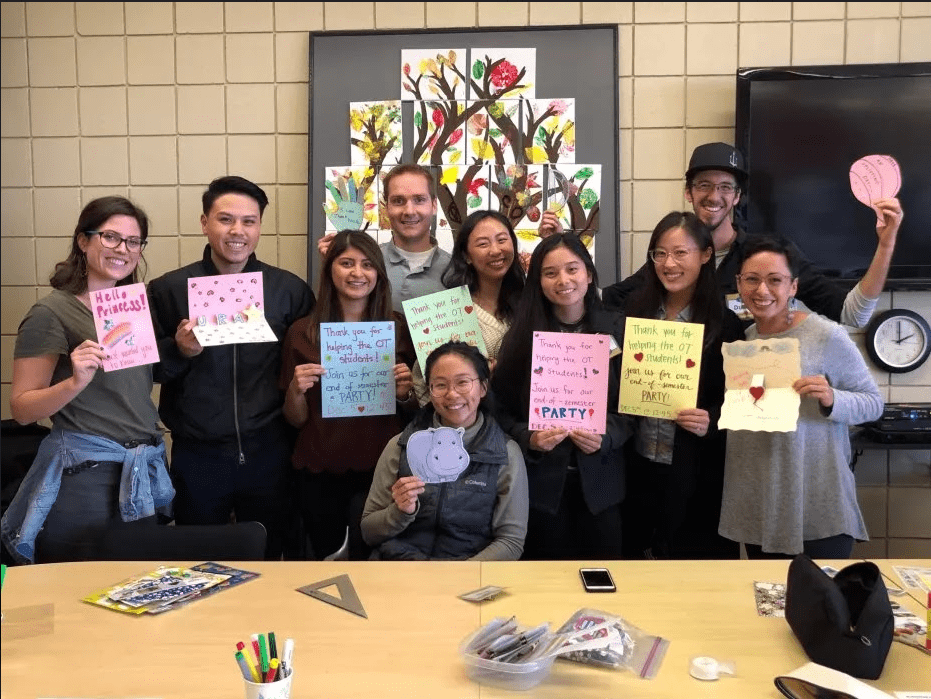By: Dr. Winifred Schultz-Krohn
For the past 20 years a unique fieldwork (FW) opportunity has been provided for two graduate occupational therapy students at the Family Supportive Housing Homeless Shelter. Dr. Winifred Schultz-Krohn has provided pro bono occupational therapy services there for over 20 years and has served as the FW educator for the students at SJSU. The program was developed to meet the needs for family members using age related groups such as those for parents, teens, children 7 to 12 years old, children ages 4 to 6, and infant/toddler massage classes with mothers. These occupational therapy groups were designed to create support among members from different families while also supporting various family members during the stressful time of experiencing homelessness. The groups focused on various topics such as stress reduction, parent-child bonding, social skill development, financial management, work readiness, and parenting skills.
The shelter-in-place (SIP) restrictions due to the COVID-19 pandemic created substantial disruptions to FW opportunities for occupational therapy students. Fieldwork placements were cancelled for many SJSU occupational therapy students, as was the case nationally. Dr. Schultz-Krohn worked with the Executive Director of the shelter to preserve the FW experience and created a new plan for students to provide occupational therapy services to families at the shelter. This necessitated changing the program dramatically and focusing on supporting family engagement in meaningful occupations instead of providing group occupational therapy sessions. The revisions also included the need for extensive cleaning protocols to be developed given sessions were in-person, albeit with social distancing and mask-use, but within the same room.
The two graduate occupational therapy students displayed a high degree of flexibility and adaptability as the FW program needed to pivot to provide services to families and not through age related groups. They successfully worked with the FW educator to blend theoretical models that supported this process. A focus on meaningful family occupations was used throughout the FW experience and addressed not only the stress of being homeless but the additional stress of COVID-19 pandemic. Families responded well to the support provided along with the care to clean the room thoroughly between appointments with each family.
The students gained a valuable experience of being able to pivot during a pandemic and still provide authentic occupational therapy services. The students collaborated with the FW educator to submit a poster describing their experience to the American Occupational Therapy Association Annual Conference and are awaiting the results of the blinded peer review. Many parents were able to locate employment, often part time jobs, during this stressful period of time with the support of the occupational therapy students. Stress reducing family routines were introduced and supported as a means to mitigate the deleterious effects of homelessness. Family members repeatedly thanked the students for their support and guidance during their FW experience.
The students were so kind and wrote Dr. Winifred Schultz-Krohn a letter after they had completed their fieldwork experience. They commented that they had developed a “real OT brain!” One of the case managers commented “we love having the OTs here to help our families.” It was the last week of the internship and one family commented “You always made us feel accepted and supported; you were like our extra family here.” On the last day another family repeatedly visited the OTs and said “you really cared about us, about how we were feeling.”
